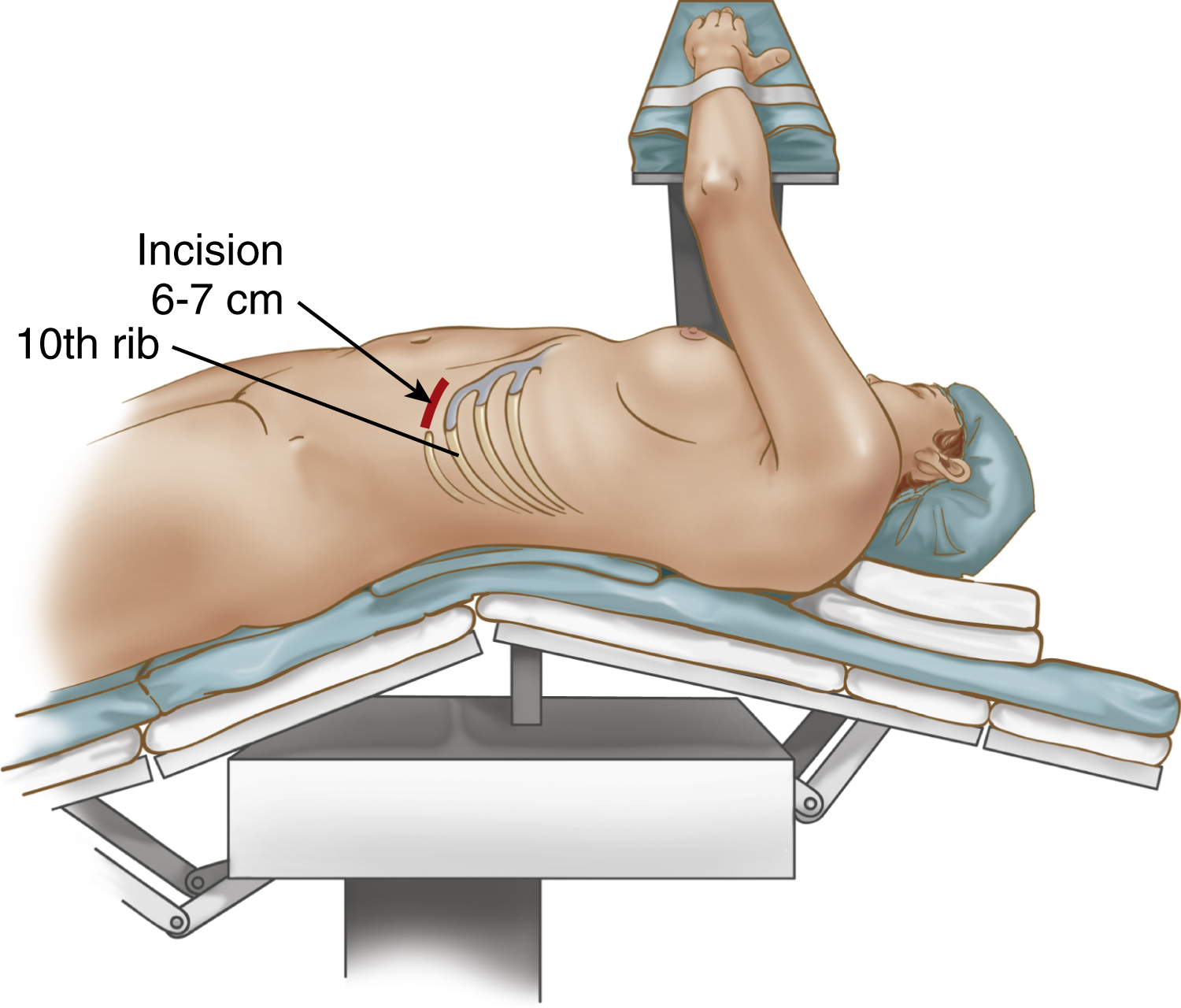nephrectomy /-ek″təmē/ [Gk, nephros, kidney, ektomē, excision] , the surgical removal of a kidney, performed to remove a tumor or otherwise diseased kidney. In the patient with renal failure, the kidney may be the cause of extreme hypertension, and therefore one or both kidneys are removed. A nephrectomy may also be performed to obtain a kidney for a living donation. Before surgery blood is typed and crossmatched for transfusion. Any testing required for a living donation is completed by both the donor of the kidney and the recipient. During surgery the kidney is approached through either a flank, abdominal, or thoracoabdominal incision and removed. If the thoracic cavity is opened, a chest tube is inserted and connected to water-seal drainage. In the postoperative period respiratory care is critically important as the incision can be painful and interfere with deep breathing.

